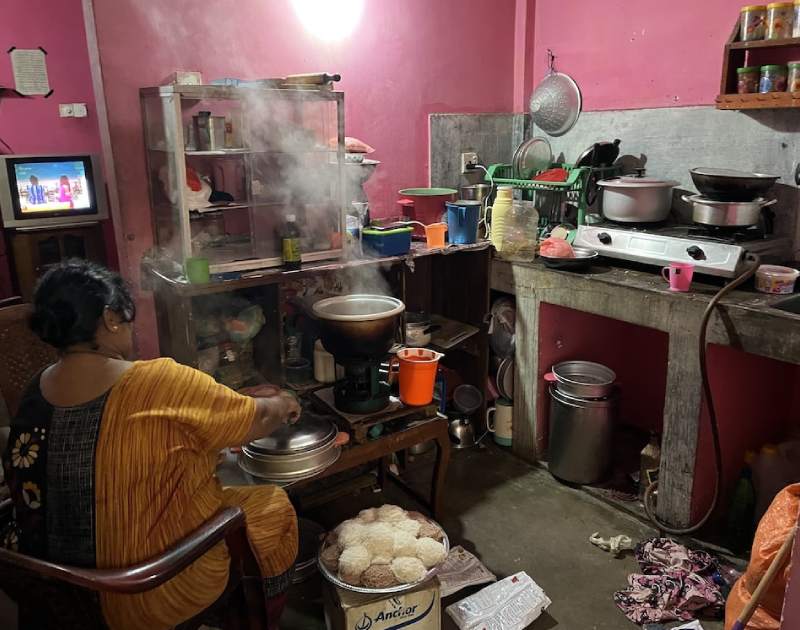
- Home
- Knowledge Insights
- SIGNALS OF CHANGE: Can Blockchain Solve Trade Finance Bottlenecks?
This article is part of the Forum’s ‘SIGNALS OF CHANGE’ series. The series provides foresight on trends, technologies and issues shaping the future, by showcasing/discussing signals of change and their implications.
Trade finance represents one of the three factors that hinder exports, affecting the possibility of linking or moving up the value chain and operating in the global markets[1]. The global trade finance gap is now estimated to be US$ 1.5 trillion per annum, with a staggering 60% of trade finance requests from small businesses refused by banks, significantly hampering trade opportunities for SMEs.[2] The supply or shortage of trade finance hurts SMEs the most, and thus has negative implications for inclusive growth[3]. Firm-level surveys by the International Monetary Fund (2016), World Bank (2015), and the Association of Supervisors of Banks of the Americas (2015) indicate that SMEs in countries in Africa, the Caribbean, Central Asia and Europe have been impacted by the lack of trade finance the most.
Since the global financial crisis of 2008, international banks have been reducing the size of their networks, leading to negative consequences for the smallest traders and developing countries, who find it hardest to access trade finance. Tightened regulations, enhanced financial controls, increasing compliance costs and the inherent risks involved in cross-border trade, coupled with an ever-changing landscape of regulations, has impacted trade finance activities, including correspondent banking relationships.
Today, trade finance remains largely paper based, manual and inefficient, requiring technological solutions that solve these problems and remove pain points. There are an estimated four billion pages of credit documentation in global trade finance today[4], resulting in most advances in trade finance technology focusing on digitizing key trade documentation like invoices, bills of lading, certificates of origin and airway bills, with the intention of introducing faster and more efficient verification of compliance with customs and international trade regulations. There is a new wave of technology expected to positively disrupt trade finance through a variety of ways, including artificial intelligence, machine learning automation and distributed ledger technologies like blockchain – one of the most promising technologies expected to revolutionize trade finance.
Trade finance is currently full of inefficiencies and the industry is extremely vulnerable to fraud. The transactions rely heavily on long paper trails connecting multiple parties in the trade transaction that act as key verification points in the supply chain. The exchange of documents throughout the supply chain takes about five to ten days, if not longer, as manual verification is required. Parties are dispersed across the globe and operate on multiple platforms resulting in miscommunication and delays, causing ripple effects where finance disbursement and the delivery of physical goods is delayed. Every inspection of goods and every stop along the supply chain costs time and drives up prices, harming both businesses and consumers alike.More serious problems could arise in the event of fraud, where the same batch of goods is financed multiple times by banks who do not share the same information and or where certain trade documents are faked to obtain financing. Therefore, paper processes need to be replaced and blockchain technology can play a vital role in this transformation.
Blockchain technology creates an indelible audit trail that provides improved traceability, a benefit of blockchain that contributes to reduced compliance costs and eliminates the risk of manipulation by parties in the chain.[5] All legal, financial and product related information can be made available, allowing even the least trusting parties to comfortably conduct business. Concerns about reduced barriers at the borders and trade agreements increasing the risk of illicit trade can be addressed by blockchain through the provision of a system of authorized participants with high levels of transparency about the product, the party selling it or the path it takes to reach the buyer. Every party or item moved through the blockchain-backed channel can be traced, validated or rejected, ensuring trade malpractices and fraudulent behavior can be mitigated. Immutable records on the source of the raw material to where and how the products were manufactured, their distribution, maintenance, repair, recall and recycling histories, along with information about ownership, authenticity and price can all be held in the blockchain network. This information can help customs authorities decide what goods to let through the border and what to block, thereby optimizing customs clearance.[6] It is estimated that blockchain could increase global trade volumes by US $1.1 trillion and increase the global banking industry’s annual revenue form documentary trade financing by US$ 2 billion by 2026.[7]
Despite the benefits of blockchain, it is yet to be widely adopted by most parties engaged in trade finance. The Global Fintech Survey carried out by PWC states that approximately 40 per cent of banks surveyed were either slightly familiar or not familiar at all with the technology and less than 5 per cent of respondents were extremely familiar with blockchain.[8] However, several banks, financial institutions and tech companies have formed partnerships in an attempt to develop and implement blockchain networks and shift trade finance on to blockchain technology. These partnerships are emerging proof of how stakeholders in trade see trade finance as an area with significant potential to benefit from the application of blockchain technology.
Barclays reported the first blockchain based trade finance deal that covered US $100,000 worth of cheese and butter between Irish agricultural food cooperative Ornua and the Seychelles Trading Company. A 10-day process covering the issue and approval of the letter of credit was reduced to less than 4 hours, a significant improvement in a typical pain point in the trade finance process.[9]
Batavia, built on the IBM Blockchain Platform and developed in collaboration with major banks like UBS, Bank of Montreal, CaixaBank, and Commerzbank, conducted pilot transactions with imports to Spain – cars from Germany and textiles from Austria.[10]At the close of the trade agreement, smart payments, automatically triggered by specified events in the supply chain, are made to the respective parties and immutably recorded in the blockchain.[11] Batavia has digitized and sped up the process of obtaining a letter of credit, which usually takes 10-14 days, to under one hour.[12]
In 2016, banking consortium R3CEV reported that 15 of its members had joined a trade finance trial to test its distributed ledger technology named Corda. It is an open-source platform that allows businesses to transact directly and in strict privacy using smart contracts, reducing transaction costs and streamlining business operations.[13] Voltron is a letter of credit application, business network and consortium built on Corda’s blockchain platform. Voltron’s founding members, Standard Chartered, Bangkok Bank, BNP Paribas, CTBC Holding, HSBC, ING, NatWest and SEB conducted pilot transactions in different industries including metals, wool, soybeans and plastics. The Standard Chartered pilot involved the shipment of an oil product from Thailand to Singapore, involving oil and gas companies PTT Group, PTT International Trading and IRPC Public Company, in which the exchange of information between parties happened digitally on Voltron. The issuance, advising and negotiation of the letter of credit and presentation of documentation were all done on the platform, with all participants having real time updates on the transaction. The processing time, which generally takes days to complete, was significantly reduced to less than 12 hours.
HSBC India and ING Bank Brussels introduced a blockchain platform integrated with Bolero’s Bill of Lading platform to issue and manage an electronic bill of lading, allowing the digital transfer of the title of goods from seller to buyer. The letter of credit was issued by ING for Tricon Energy USA, the importer, with HSBC India as the negotiating bank for Reliance Industries India, the exporting party, with the seven to 10-day documentation process being completed within a day.[14] Another letter of credit transaction facilitating the bulk shipment of soybeans for international food conglomerate Cargill was executed by HSBC and ING using the platform. The transaction involved the shipment of soybeans from Argentina, through Cargill Geneva, to Malaysia, through Cargill’s Singapore subsidiary as the purchaser. The two banks acted on behalf of the Cargill entities with the letter of credit being issued using the blockchain platform by HSBC to ING. Paper based documentation related to obtaining a letter of credit which is usually a five to 10-day process, was done in 24 hours, highlighting a key benefit of blockchain technology in trade finance digitization.[15]
The provenance, transparency, and efficiency that technologies like blockchain can offer for transforming trade finance are now increasingly recognised. While some financial services institutions in the world will naturally adopt the new trade finance technologies quicker than others, the broader trend is clear. For Sri Lanka’s banks and technology companies, there presents a unique opportunity to help our firms get the benefits of trade finance innovation. Given the country’s ambitions to position itself as competitive commercial hub in the Indian Ocean region, as well as efforts to establish a Colombo International Financial Centre (at the Port City real estate project) under specialized laws the trade finance innovation agenda is an important area to focus on. Perhaps, a new legal, regulatory and administrative structure at the Colombo International Financial Centre can provide a regulatory sandbox for technology innovation in trade finance, where Sri Lanka can be a testbed and experimentation hub in the region, for the big financial services players to operate from. Additionally, an enhanced level of technology innovation in trade finance needs to become mainstream in the country’s banking sector, in order to drive new efficiencies, cut time and costs for firms, and truly make the country competitive in the international trade transactions arena. Regulators, financial services industry players (both local and foreign), and technology firms need to work closely together to make this happen. The Central Bank’s existing domestic fintech regulatory sandbox can already provide a starting point for it.
A version of this article appears in the Association of Professional Bankers (APB) Journal, 2020.
[1] https://www.weforum.org/agenda/2017/10/trade-finance-what-to-know/.
[2] https://www.wto.org/english/res_e/statis_e/wts2018_e/wts2018_e.pdf.
[3]https://iccwbo.org/global-issues-trends/banking-finance/access-trade-finance/.
[4] https://tradeix.com/benefits-of-blockchain-in-trade-finance/.
[5] https://tradeix.com/benefits-of-blockchain-in-trade-finance/.
[6]https://www.weforum.org/agenda/2017/02/blockchain-trade-trust-transparency.
[7]https://www.bain.com/insights/rebooting-a-digital-solution-to-trade-finance/.
[8]https://www.weforum.org/agenda/2017/02/blockchain-trade-trust-transparency.
[9]https://www.weforum.org/agenda/2017/02/blockchain-trade-trust-transparency.
[10]https://www.gtreview.com/news/fintech/ibm-batavia-blockchain-platform-global-trade/.
[12]https://www.gtreview.com/news/fintech/ibm-batavia-blockchain-platform-global-trade/.
[13]https://www.r3.com/wp-content/uploads/2019/05/CordaEnterprise_FS_May2019.pdf.
[15]https://www.hsbc.com/media/media-releases/2018/hsbc-trade-blockchain-transaction-press-release.


